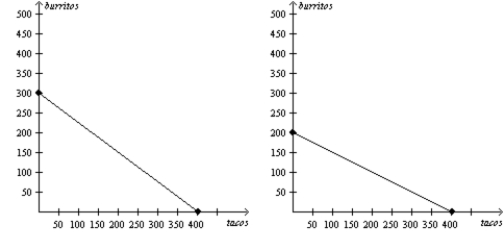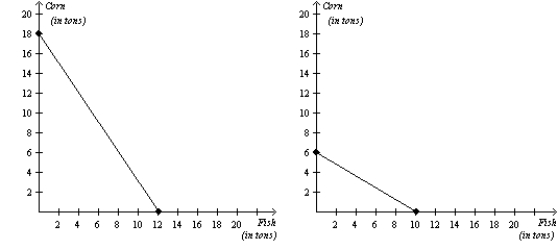Exam 3: Interdependence and the Gains From Trade
Exam 1: Ten Principles of Economics438 Questions
Exam 2: Thinking Like an Economist620 Questions
Exam 3: Interdependence and the Gains From Trade527 Questions
Exam 4: The Market Forces of Supply and Demand700 Questions
Exam 5: Elasticity and Its Application598 Questions
Exam 6: Supply, Demand, and Government Policies648 Questions
Exam 7: Consumers, Producers, and the Efficiency of Markets547 Questions
Exam 8: Application: the Costs of Taxation514 Questions
Exam 9: Application: International Trade496 Questions
Exam 10: Measuring a Nations Income522 Questions
Exam 11: Measuring the Cost of Living545 Questions
Exam 12: Production and Growth507 Questions
Exam 13: Saving, Investment, and the Financial System567 Questions
Exam 14: The Basic Tools of Finance513 Questions
Exam 15: Unemployment699 Questions
Exam 16: The Monetary System517 Questions
Exam 17: Money Growth and Inflation487 Questions
Exam 18: Open-Economy Macroeconomics: Basic Concepts522 Questions
Exam 19: A Macroeconomic Theory of the Open Economy484 Questions
Exam 20: Aggregate Demand and Aggregate Supply563 Questions
Exam 21: The Influence of Monetary and Fiscal Policy on Aggregate Demand511 Questions
Exam 22: The Short-Run Trade-Off Between Inflation and Unemployment516 Questions
Exam 23: Six Debates Over Macroeconomic Policy372 Questions
Select questions type
Table 3-5
Assume that Aruba and Iceland can switch between producing coolers and producing radios at a constant rate.
 -Refer to Table 3-5. Which of the following combinations of coolers and radios could Aruba produce in one 40- hour week?
-Refer to Table 3-5. Which of the following combinations of coolers and radios could Aruba produce in one 40- hour week?
(Multiple Choice)
4.7/5  (41)
(41)
Two countries can achieve gains from trade even if one country has an absolute advantage in the production of both goods.
(True/False)
5.0/5  (33)
(33)
Table 3-3
Production Opportunities
 -Refer to Table 3-3. Which of the following combinations of cheese and wine could France produce in 40 hours?
-Refer to Table 3-3. Which of the following combinations of cheese and wine could France produce in 40 hours?
(Multiple Choice)
4.8/5  (34)
(34)
Figure 3-14
Arturo's Production Possibilities Frontier Dina's Production Possibilities Frontier
 -Refer to Figure 3-14. If Arturo and Dina switch from each person dividing their time equally between the production of tacos and burritos to each person spending all of their time producing the good in which they have a comparative advantage, then total production of burritos will increase by
-Refer to Figure 3-14. If Arturo and Dina switch from each person dividing their time equally between the production of tacos and burritos to each person spending all of their time producing the good in which they have a comparative advantage, then total production of burritos will increase by
(Multiple Choice)
4.7/5  (34)
(34)
Figure 3-12
Argentina's Production Possibilities Frontier Peru's Production Possibilities Frontier  -Refer to Figure 3-12. If Argentina and Peru each divides its time equally between producing corn and fish, then total production is
-Refer to Figure 3-12. If Argentina and Peru each divides its time equally between producing corn and fish, then total production is
(Multiple Choice)
4.8/5  (42)
(42)
Table 3-40
 -Refer to Table 3-40. Germany should specialize in the production of
-Refer to Table 3-40. Germany should specialize in the production of
(Multiple Choice)
4.9/5  (37)
(37)
Adam Smith wrote that a person should never attempt to make at home what it will cost him more to make than to buy.
(True/False)
4.7/5  (39)
(39)
Showing 521 - 527 of 527
Filters
- Essay(0)
- Multiple Choice(0)
- Short Answer(0)
- True False(0)
- Matching(0)